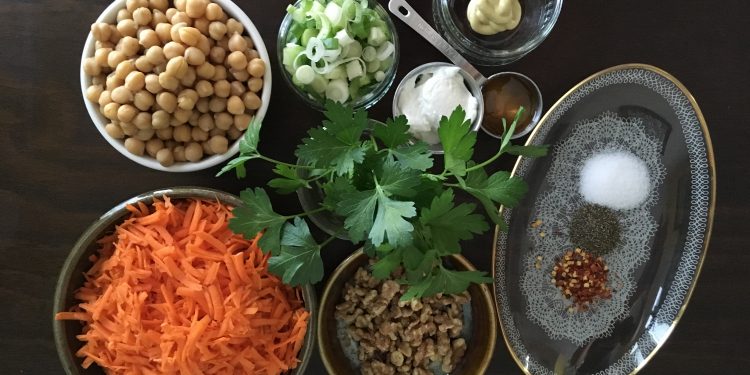by Sierra Fawn Guay, MS, RDN, LDN
Our eyes are complex organs that are responsible for communicating messages between the external world and our brains. Changes in eye function are common after brain injury. Nutrition plays an essential role in promoting eye health. The foods that we eat provide the nutrients that our eyes need for optimal functioning and longevity, which is of particular importance when a brain injury exists.
Eating for optimal eye health means eating fresh, whole foods and staying adequately hydrated. It is necessary to eat a wide variety of foods in order to obtain all of the macronutrients (proteins, carbohydrates, and fats) and micronutrients (vitamins and minerals) that we need to achieve and maintain good health.
The following nutrients are most important for good eye health:
- Lutein and zeaxanthin are carotenoids found in yellow, orange and red plants; leafy green vegetables; and egg yolks. These nutrients are taken into the macula of the eye and may reduce the risk of age-related macular degeneration (1, 2).
- Omega 3 fatty acids are found in fatty fish, algae, walnuts, and flaxseeds. These nutrients are important for brain health and neurological function, and may prevent age-related vision loss (3).
- Vitamin A is made by our bodies from certain carotenoids such as beta carotene. Vitamin A helps promote good vision, and improves our ability to see at night and adjust to lower levels of light.
- Vitamins C and E serve as antioxidants and protect our eyes from oxidative damage. Additionally, vitamin E may help improve neuroplasticity (4).
- Zinc is found in meat, seafood, eggs, and some whole grains. This nutrient helps create melanin to protect our eyes. Adequate zinc intake may also reduce the risk of age-related macular degeneration.
Certain foods may worsen eye health, and should be consumed in limited amounts (if at all). These foods include alcohol (which may compete for valuable nutrients needed by the eyes), excessive caffeine, added sugars, and salt. Processed foods (mostly found in packages) tend to be high in added sugars and salts and low in vitamins and minerals.
Quick nutrition tips to optimize eye health:
- Eat a wide variety of fruits and vegetables. Eat as many as you can manage.
- Drink at least eight cups of water a day. Drink more water if you sweat or if your urine is dark yellow.
- Eat whole eggs (versus only the egg whites). Egg yolks are full of vitamins and minerals, including lutein, zeaxanthin, and zinc.
- Read nutrition labels. Choose foods that are lower in sugar and sodium (salt).
- Carotenoids (bright yellow, orange or red plant pigments) are best absorbed when eaten with fat. This can be done in many ways. For example, you might roast yellow squash with olive oil or eat fatty fish with a side of leafy greens. Among other nutrients, you’ll be eating lutein and zeaxathin (Romaine lettuce), omega 3 fatty acids (walnuts), beta carotene (carrots), vitamin C (parsley), vitamin E (walnuts), and zinc (chickpeas).
You might also try the Chickpea Stuffed Lettuce Wraps, featured below!
Chickpea Stuffed Lettuce Wraps
Ingredients:
1 15 ounce can of chickpeas (drained, rinsed, and lightly mashed)
2 large carrots (washed and shredded)
1/3 cup walnuts (chopped)
3 tbsp. Greek yogurt
1 tsp. Dijon mustard
1 tbsp. honey
2 scallions (washed and chopped)
¼ cup fresh parsley (washed and chopped)
Salt, pepper, and your favorite spices to taste
Romaine lettuce (leaves separated and washed)
Instructions:
Mix ingredients (except for lettuce). Stuff lettuce with mixture. Enjoy!
Sierra is a registered dietitian who works with brain injury survivors in Greenville, North Carolina











